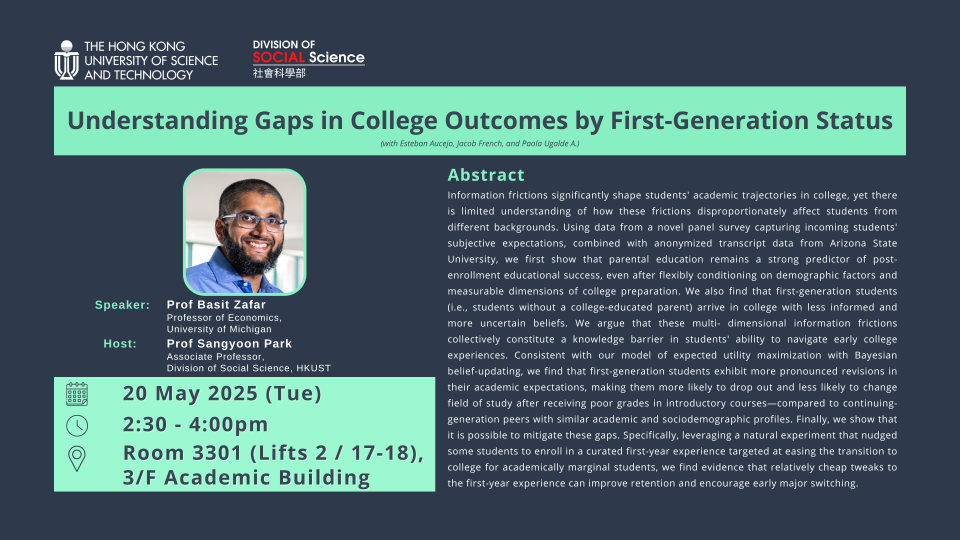(with Esteban Aucejo, Jacob French, and Paola Ugalde A.)
Information frictions significantly shape students' academic trajectories in college, yet there is limited understanding of how these frictions disproportionately affect students from different backgrounds. Using data from a novel panel survey capturing incoming students' subjective expectations, combined with anonymized transcript data from Arizona State University, we first show that parental education remains a strong predictor of post-enrollment educational success, even after flexibly conditioning on demographic factors and measurable dimensions of college preparation. We also find that first-generation students (i.e., students without a college-educated parent) arrive in college with less informed and more uncertain beliefs. We argue that these multi- dimensional information frictions collectively constitute a knowledge barrier in students' ability to navigate early college experiences. Consistent with our model of expected utility maximization with Bayesian belief-updating, we find that first-generation students exhibit more pronounced revisions in their academic expectations, making them more likely to drop out and less likely to change field of study after receiving poor grades in introductory courses—compared to continuing-generation peers with similar academic and sociodemographic profiles. Finally, we show that it is possible to mitigate these gaps. Specifically, leveraging a natural experiment that nudged some students to enroll in a curated first-year experience targeted at easing the transition to college for academically marginal students, we find evidence that relatively cheap tweaks to the first-year experience can improve retention and encourage early major switching.
Basit Zafar is a Professor of Economics at the University of Michigan. He is an applied microeconomist, with interests in labor economics and higher education. His research employs a disparate set of empirical methods and techniques, including the use of subjective expectations and experimental data. His work has been published in several leading Economics and Finance journals. Dr. Zafar received his Ph.D. from Northwestern University in 2008, and his B.Sc from Caltech. Before joining the faculty at Michigan, he held positions at Arizona State University and the Federal Reserve Bank of New York.
Host: Prof Sangyoon Park, Associate Professor, Division of Social Science, HKUST

